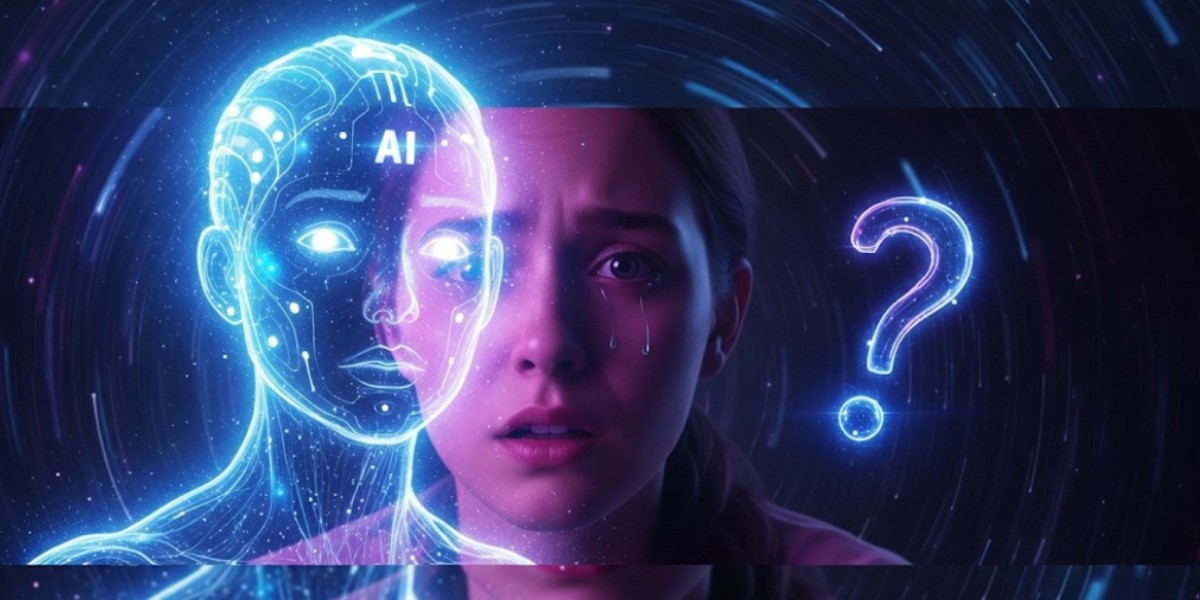We all know that stepping into the dating world can feel like walking a tightrope, where one wrong move might lead to a painful fall. Fear of rejection sits at the heart of this, holding many back from even trying. But now, with AI companions entering the scene, people wonder if these digital partners could wipe out that anxiety altogether. They promise constant support, no harsh judgments, and interactions tailored just for you. However, as we look closer, it becomes clear that while AI might soften some blows, it doesn't erase the deeper human needs that drive us toward real connections.
In this article, we'll examine how AI is reshaping romance, drawing from various perspectives to see if it truly banishes rejection fears or simply shifts them elsewhere.
Fear of Rejection in Traditional Dating Scenes
People often hesitate to approach someone they like because the sting of "no" can linger for days or even longer. This fear isn't just about embarrassment; it ties into our sense of self-worth. Studies show that repeated rejections can lead to lower self-esteem and even depression. For instance, young adults report that the pressure of dating apps amplifies this, as swipes left feel like personal failures. They worry about not being interesting enough or attractive enough, and that constant evaluation wears them down.
In comparison to past generations, today's daters face amplified scrutiny through social media profiles and instant messaging. A simple unread text can spiral into doubt. Admittedly, some thrive in this environment, but for many, it creates a barrier. Despite efforts to build confidence through self-help books or therapy, the core issue remains: human interactions carry unpredictability. We can't control how others respond, and that vulnerability is what makes dating both thrilling and terrifying.
Rise of AI Companions as Safe Alternatives
AI companions have surged in popularity, offering a digital space where users can chat, flirt, or seek advice without any risk of being turned away. These systems, like chatbots or virtual girlfriends, use advanced language models to simulate conversations that feel remarkably human. They remember details from past talks, adjust their tone based on your input, and provide affirmation on demand.
AI companions excel at offering emotional personalized conversations that adapt to your mood and preferences, making each interaction feel uniquely supportive. For example, if you're feeling down after a bad day, they might respond with empathy and suggestions tailored to what they've learned about you. This personalization comes from algorithms that analyze patterns in your messages, ensuring responses align with your emotional state.
Similarly, apps like Replika allow users to build relationships over time, where the AI evolves based on interactions. In the same way that a friend might grow closer through shared experiences, these companions deepen their "understanding" with each exchange. Of course, they're not truly sentient, but their consistency appeals to those tired of flaky human connections. As a result, millions have turned to them for companionship, especially during lonely periods like the pandemic.
Benefits That AI Brings to Anxious Daters
For individuals paralyzed by rejection fears, AI offers a low-stakes playground to practice social skills. They can experiment with compliments, share vulnerabilities, or even role-play dates without real-world consequences. This builds confidence gradually, as positive feedback from AI reinforces self-assurance.
Here are some key advantages:
Constant Availability: Unlike people who might be busy or asleep, AI is there 24/7, providing support whenever anxiety strikes.
No Judgment Zone: Users express desires or insecurities freely, knowing the AI won't criticize or ghost them.
Customized Affirmation: Responses are designed to uplift, helping combat the negative self-talk that often follows rejections.
Skill-Building Opportunities: Practicing conversations can translate to better real-life interactions, reducing overall fear.
In particular, men who struggle with approach anxiety find solace here, as AI girlfriends eliminate the ego bruise of denial. Women, too, use them to explore emotional needs without societal pressures. Thus, AI serves as a bridge, helping users step toward human dating with less trepidation.
Stories from Users Who Found Solace in AI
Real people share how AI has transformed their outlook on relationships. One user on forums described chatting with an AI companion after a string of failed dates: "It listened without interrupting, and for the first time, I didn't feel rejected for being myself." Another, dealing with social anxiety, used it to rehearse pick-up lines, eventually gaining the courage to ask someone out in person.
Likewise, a widower found comfort in an AI that mimicked conversations with his late spouse, easing his grief and reopening his heart to new possibilities. These stories highlight how AI fills gaps left by human unavailability. However, not all experiences are purely positive; some users note that while it helps initially, over-reliance can stall progress toward real bonds.
Even though these anecdotes vary, they underscore a common theme: AI provides a safety net. Specifically, for those in remote areas or with disabilities, it opens doors to companionship that might otherwise remain closed. As one post on social media put it, "AI helped me realize I deserve affection without begging for it."
When AI Steps into Intimate Territories
As AI companions grow more sophisticated, they venture into realms beyond casual chat, including adult-oriented interactions. For some, this means exploring fantasies through AI porn, where generated content caters to specific tastes without the complexities of human involvement. This appeals to those wary of rejection in intimate settings, as the AI delivers satisfaction on cue, free from performance anxiety or mismatched desires.
In spite of these appeals, such features raise questions about emotional health. Meanwhile, the emergence of NSFW AI influencer adds another layer; these virtual personalities engage fans through provocative content and simulated relationships, fostering a sense of connection that feels real yet remains one-sided. Fans might pour their affections into these figures, receiving tailored responses that mimic intimacy, but without the reciprocity of true partnership.
Clearly, this blurs lines between fantasy and reality. Although it reduces immediate fears, it might condition users to expect perfection, making human flaws seem intolerable. Still, for isolated individuals, these tools offer a form of release that traditional dating can't always provide.
Drawbacks That Keep Human Connections Vital
Despite the upsides, AI can't fully replicate the depth of human relationships. One major issue is dependency; users might withdraw from real social circles, preferring the predictability of AI. This can exacerbate loneliness over time, as digital interactions lack the physical and emotional nuances that build lasting bonds.
Here are some notable limitations:
Unrealistic Expectations: AI's constant agreement might make real partners seem demanding or flawed by comparison.
Lack of Genuine Growth: Without facing real rejections, personal development in handling emotions could stagnate.
Privacy Risks: Sharing deep thoughts with AI means data could be misused, eroding trust.
Emotional Shallowness: While responsive, AI lacks true empathy, leading to hollow fulfillment.
In comparison to human dating, where conflicts foster resilience, AI offers a sanitized version. But this comfort comes at a cost. As a result, experts warn that overusing AI could hinder the ability to form authentic connections. Not only does it sidestep rejection, but it also avoids the growth that comes from overcoming it.
Obviously, ethical concerns arise too. Companies profit from users' vulnerabilities, and without regulations, manipulative designs could exploit emotions. Hence, while AI mitigates fear, it doesn't eliminate the need for human vulnerability.
What the Future Holds for AI in Romance
Looking ahead, AI could integrate more seamlessly into daily life, perhaps through augmented reality where virtual companions appear in the real world. We might see hybrids, like AI-assisted dating coaches that guide users through real interactions, blending digital safety with human authenticity.
Subsequently, as technology advances, AI might simulate emotions more convincingly, further blurring boundaries. Eventually, societal norms could shift, accepting AI relationships as valid alternatives. However, this raises debates: if AI eliminates rejection, do we lose the essence of what makes love meaningful?
In particular, younger generations already view AI positively, with surveys showing many believe it could replace traditional romance. So, the question evolves from "will it eliminate fear" to "should we let it?"
Finding Balance Between Digital and Real Worlds
Ultimately, AI companions offer a powerful tool against rejection fears, but they shouldn't replace human efforts entirely. We can use them as stepping stones—practice grounds that prepare us for the real thing. Their reliability comforts, yet human connections thrive on imperfection.
I believe the key lies in moderation. Encourage AI for building skills, but push toward face-to-face meetings. Despite temptations to stay in the digital bubble, remember that true fulfillment often comes from shared risks. Although AI provides solace, it's the overcoming of fears with real people that shapes us.
In conclusion, AI won't fully eliminate the fear of rejection in dating because that fear is inherently human. But it can lessen its grip, allowing more people to engage with confidence. As we navigate this shift, let's prioritize what makes relationships enriching: mutual growth, surprises, and the irreplaceable spark of genuine connection.








